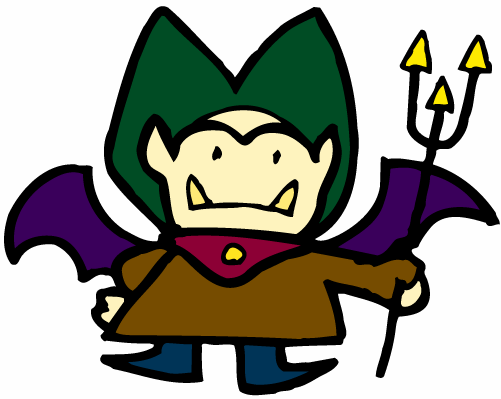
Introduction:
Japan is still
perhaps, the safest place to live in the world, with fewer crimes than
in any other country.
During the mid eighties, the number of crimes reported were about 12.5
%, of the American figure of 13.21 million. One reason for the low crime
rate is the hashutsujo (police box) and the chuzaisho (Live in police
box), they are to be found in many places in the towns and cities, near
a railway station, on a street corner, and so on. They keep a register
of local residents, and become very familiar with the local people. A
stranger to the area would be noted, and if you are a foreigner, a
closer examination by a policeman might be in order. The police boxes
are also useful in that, when a crime does take place, the police can
respond quickly. Maybe, another reason for low crime in Japan, is the
neighborhood committee. They do make it their business to familiarize
themselves with new residents, especially in the countryside where they
take themselves more seriously, often a feeling of intrusiveness is
felt, especially if like me, you come from a large city, where people go
out of their way to avoid any kind of contact with one another, and
would be both deaf and dumb if a crime did occur.
That was Japan, up until the end of the 1980s, how about now?
A once Safe Place to Live?
Sadly, the crime rates are on a steady upward path, politicians are at a
loss on how to deal with it. Crimes committed by minors are growing
alarmingly, politicians are wanting to lower the age in which a minor
can be tried for his or her crime. As the law stands now, a 14 year old
youth on younger, committing murder will be sent to a reform school for
a few years, then released into society again. The youth will only
appear in a family court (the lowest court in Japan, usually dealing
with divorces and such), no mater how serious the charges brought
against him. Also the names of convicted youths are not publicized, in
order to protect the youth? Politicians and the NPA (National Police
Agency) have realized at long last, that the punishment meted out to
these young criminals is not severe at all and does nothing to
discourage future youths from committing any kind of crime.
The NPA used to blame foreigners for the rise in crime, but just
recently they have stopped doing so. We are only a National security
risk, especially if the alien card laws were repealed, according to a
statement made by the NPA late last year (1998).
Japan has always had it share of wicked malefactors, from serial child
rapists and murderers to the Aum Shinrikyo, who were responsible for
carrying out the gas attacks on the Tokyo subway trains, and who are
still battling it out in court. |

The Young
Criminal:
Recently young
offenders committing serious crimes has risen sharply, crimes against
people is especially of concern in a country where such acts were nearly
unheard of. The recent fad of youngsters to go "salary man
bashing" seemed to bring complete dismay to the Japanese adult
population.
Children committing crimes against other children has risen. It used to
be only bullying at school, which incidentally saw a drop last year.
Taking money from weaker children and bullying were quasi-acceptable
pass times for stronger kids. Or at least it appeared so, considering
the inaction taken by schools and other authority figures to halt this
practice. Now, I think the stakes have been raised by disaffected youths
who see the leaders of Japan committing crimes and receiving only a
"slap on the wrist". Many people say that society in Japan is
breaking down, social values are being lost. It is the young people
today who will decide Japans future tomorrow. Truancy from schools is
rising, apathy towards, teachers and schools in general is increasing.
What happened? Maybe too much pressure has been put on children to
achieve a higher and yet, higher standard of achievement for too long.
The results we are seeing now is a backlash against society that could
well have serious consequences for the well being of Japan in the not so
distant future.
A popular subject on TV is the police. Documentaries follow a standard
pattern of showing policemen at work. Picking up drunken salary men from
the sidewalk, stopping drunken salary men fighting, the odd road
accident scene and finally the police and how they tackle the Bosozoku,
youth gangs on motor bikes and driving cars. If you watched the movie,
Black Rain, starring Michael Douglas, there were a couple of scenes
depicting such a gang. The film was fairly accurate, although the ages
of the gang members average at around 19 years old for both boys and
also, girls. They make their cars and bikes as noisy as possible,
drilling holes in the exhaust pipe, removing the muffler, etc. They seem
to be aimless in their driving, only wanting to cause the most
disruption to other people, blocking a highway is one popular event for
them. The police seem powerless to stop them causing havoc. The gang
members often join crime gangs, when they get older and perhaps they
already have an association with them while still in the youth gangs.
It has been reported that a young Japanese-Brazilian boy who was beaten
to death last year (1998), by 50 gang members, were told to do so by a
Yakuza boss (crime gang boss). It is said that he told the youths to go
gaijin bashing. Perhaps in their desire to please him they went too far
and murdered a young innocent boy. The gang members who were caught and
convicted of this crime received a few years in prison.
Crime in general
Why is the crime rate going up? The answer in part, is in the preceding
paragraphs. Politicians ask the same question, but appear blind to the
truth. Especially as many public officials, have been convicted and will
be convicted of crimes, but they do not go to prison! A high profile
crime, recently, is that of a middle aged couple in Wakayama, who set
out to poison their friends and acquaintances and claim the insurance
money they had taken out on their lives. The wife has also been accused
of attempting to poison her husband for the same reason. A festival in
the summer of 1998, many people fell ill after eating curry, prepared by
the neighborhood committee. Police, later found that it had been laced
with poison. A young child died as a result of this crime. The same
housewife has been accused of this crime too. It is the same substance
used to poison her other victims.
I guess she will go to prison if and when she is convicted, or maybe,
more deservingly be awarded the death penalty.
Another case that came to light last week (w/e January 12th) was that of
young women being drugged and then being kidnapped. One young woman was
found near her home. She had died from exposure, as the average
temperature in Japan now is barely above 0?(January). A 23 year old man
has been arrested for these crimes. He did it to steal their money and
maybe had little concern for their well being after he had taken what he
wanted. More on this story when he is sentenced.
As I have mentioned in this section and others, businessmen and
politicians are largely corrupt in Japan, it reaches out into all parts
of society. Hospitals, publishers, police, bankers, stock brokers,
building contractors, public officials, lets not forget the politicians
and many others.
With such a shameful list is it any wonder that there is a fall in
social values and a youth who are adrift? The economic recession has
also played its part in the higher crime rates, especially among young
people. High school graduates are finding it very difficult to find a
job now, even college graduates are not being employed. No lifetime jobs
for them, in fact that promise made by employers is quickly becoming
something from a bygone era. |
Conclusion:
The picture I
may have painted here, may sound very bleak, for Japan it is, but
compared to the rest of the world, this is still a safe country, for how
many more years that will be so, is anybody's guess. You can still leave
your shopping bag, camera, purse, etc. somewhere in public and it will
nearly always be there on your return. I cannot say the same for my own
city (London). Visit the Hall of Infamy to read about some of the
criminals that I have selected for that section, from public officials
(suspended sentence) to the most evil criminals in Japan.
If you have any comments send me an e-mail or submit it on my on-line
form. |
Update !
A revision to
the juvenile law was proposed by the Cabinet on March 9th 1999. The
amendment would be the first since the enactment of the juvenile law in
1948.
The proposal would allow prosecutors to make objections on points of law
and evidence. They would also be able to appeal to a higher court. Three
judges would hear the cases, instead of just a single judge.
These amendments would affect juveniles who are being tried for very
serious offenses, where adults would face the death penalty or life in
prison.
The law at present, defines a juvenile as a person under twenty years of
age, and stresses rehabilitation ( Huh !) into society. There are,
however, many people opposed to this amendment. The Japan Bar
Federation, lawyers, political opposition parties, etc. They fear that
the idea of rehabilitation will be forgotten and that juveniles will be
treated the same as adults.
I would say goodbye to bad rubbish, if they are old enough to commit the
crime then they should pay fully for it. These concerned groups,
perhaps, don't realize or care to think about, are the rights of the
victims. As it stands in the U.S.A, the criminals have far more rights
and civil liberties than the victims. Japan should not
follow down this same ugly road. |

